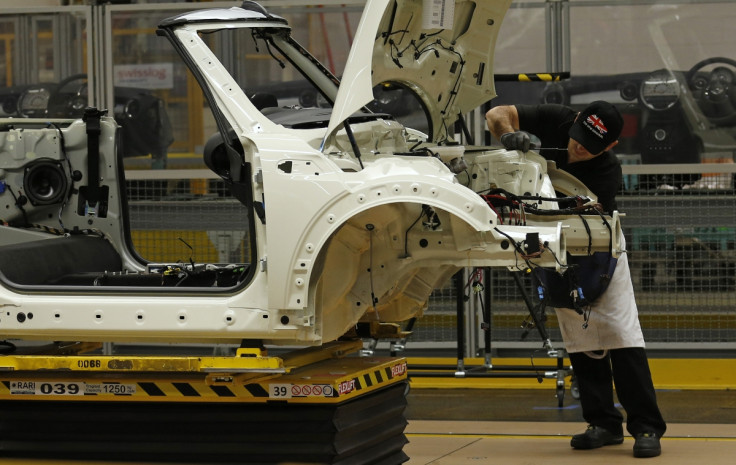UK car makers could face extra £2,370 cost per vehicle after hard Brexit
This could force some manufacturers to shift their factories outside the UK.

The cost of making a car in the UK could increase by £2,370 ($2,930) in the event of a hard Brexit, according to research published by PA Consulting Group. UK Prime Minister Theresa May's government will trigger Article 50 and start Brexit talks with the EU on 29 march, setting the country on a course to exit the European Single Market.
The report explained that the increased cost of manufacturing could be the case if the UK falls back on World Trade Organisation (WTO) rules post Brexit. It warned that the 10% WTO tariffs on exporting and importing with the European Union (EU), could force some manufacturers in the UK to relocate outside the country.
These tariffs would increase costs, equivalent to more than 10% per vehicle. I would therefore make economic sense for some manufacturers to shift their factories outside the UK.
As an example, PA Consulting said exporting 200,000 cars annually from a UK factory would cost a manufacturer about £920m after two years. For this cost, it said that manufacturer could as well set up a new plant in the EU.
However, the report showed that there were also positives if the UK left the Single Market and customs union. Tim Lawrence, global head of manufacturing at the consulting group said there could be both "upsides and downsides" and a lot would depend on the actual negotiations between the UK and the EU.
He was cited by the Guardian as saying: "The key point that has come out of [the report] for me is the potential impact if we don't come up with a trade deal and we don't come up with a solution. It all depends on the outcome of trade negotiations that will start in the next week or two."
The report said there were three possible scenarios for car and car parts manufacturers in the UK in the event that the UK starts facing trade restrictions, even of the smallest size. It explained that manufacturers such as Jaguar Land Rover, which have substantial market exposure and operations in the UK, could likely expand more in the country by encouraging suppliers to setup new facilities.
"This would involve increased investment in UK parts procurement, production and supply chains to offset increased import costs, aiming to reduce the impact of tariffs imposed on component parts moving between the UK and EU," it said.
The second scenario was that of manufacturers who had a larger chunk of operations outside the UK. It said such companies which were currently using their UK factories as a satellite facility that focuses on exports to the EU, could relocate.
The last scenario was EU-based manufacturers such as Ford that exported vehicles or components to the UK. These could shift some manufacturing to the UK, depending on "import volumes and costs of supply."
Commenting on the overall report, Lawrence said: "Both the EU and the UK would benefit from keeping free trade and supply chains unaffected because any tariffs would be damaging for both sides based on today's complex supply chain arrangements.
"Carmakers will have to review their manufacturing and supply chain network and investment decisions and plan for scenarios based on extra tariffs and charges/incentives on corporation tax. Some may consider investment options into the UK, but equally some may consider investing into the EU."
© Copyright IBTimes 2024. All rights reserved.





